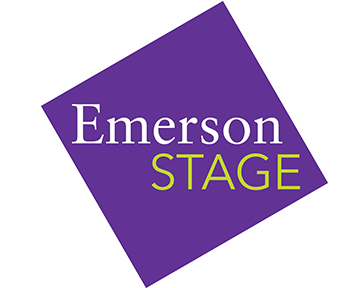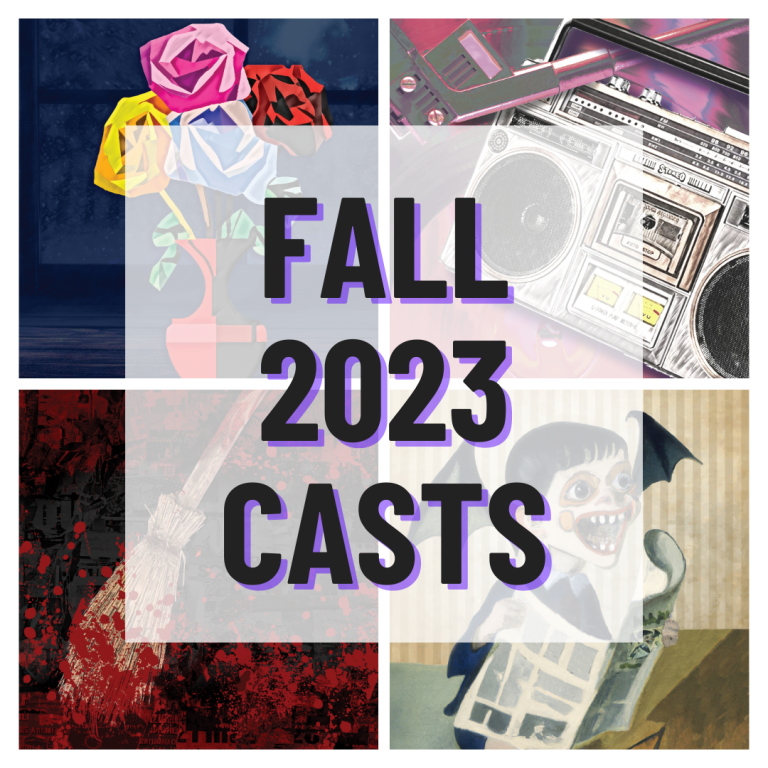The Connection
By Magda Romanska
I am a dramaturg for the upcoming production of Café Variations, a collaboration between the SITI Company, ArtsEmerson, and Emerson Stage. I am also a faculty member at Emerson, teaching courses in dramaturgy and theatre history. The first brainstorming rehearsals for the production began in New York City, just as the Spring semester started here in Boston. During my last collaboration, my partner was based in Tokyo; After Tokyo, New York doesn’t seem so far away. Yet, how do we connect long-distance doing this thing, theatre, that’s all about being together, in the same room, face-to-face, in each other’s faces…
Anne and I met in Boston in November for lunch, at the Salvatore, aptly located between the Paramount Center, the Boston Opera House, and the Modern Theatre. Anne eats meat; I don’t. Anne is a lefty; and I, having grown up in communist Poland, break into hives at the mere mention of Marx’s name (having to commit to memory half of Das Capital in the first grade will do that to you). Anne is all-American, calm, centered and solid as a rock. I am an adventive, deracinated and desultory. And yet, we clicked. There is a distance in Anne, distance towards herself, an awareness of how short our time is on this planet, how serendipitous and how dubiously heterotelic our very existence. We talk about the death of someone we both knew – was it suicide? We both nod, ambivalently, raising our eyebrows ever so slightly. Cimmerian irreverence? And so we clicked – I hope (but who knows, I can never read those Americans).
Anne wanted to talk about Zuccotti Park, vis-à-vis café culture and theatre, the three public spaces of face-to-face engagement. We talk about coffee houses as marginal spaces of alternative discourse: the pseudo-homes of artistic bohemians, the dejected souls lured to the cafés from the bourgeois universe by the quixotic promise of both decadence and human connection. Anne believes in collectivism and revolutions; I don’t. Anne is optimistic; I am not. She believes in the brightest future, Woodstock, and progress. I am fatalistically attracted to lost causes, the lonesome, self-immolating figures of Buddhist monks and despondent Warsaw Ghetto fighters. My great-grandmother survived the Russian Revolution; my grandmother, the Nazis; and my mother, the forty years of the Communist regime. The history of my family is intertwined with the history of twentieth-century Europe, leaving me inescapably bound to its dismal legacy. For me collectivism means violence, and the circumvention of individual responsibility. For Anne the togetherness of collective action means the augmentation of personal responsibility.
We talked about the dearth of public spaces in American life, the rise of the Internet, and the replacement of virtual spaces for physical interactions. We talked about the romantic myth of the American frontier, a lonesome cowboy riding off into the sunset, stolid, stoic and self-reliant. I am an immigrant. We’ve been seduced by that mythology, and we cling to it as an alternative to the history of collective revolutions that many of us escaped. Anne went back to New York, asking me to re-read Habermas’s The Structural Transformation of the Public Sphere. I did.
Habermas argues that during the nineteenth century, cafés and salons were the spaces in which the new public sphere of political discourse emerged. This arrangement eventually collapsed as capitalism spread and bourgeois material consumption came to dominate the political discourse. Habermas’s critique is founded on the Hegel–Marx trajectory, which presumes a kind of orderly progression of history as a linear dialogue – and conflict – between the haves and the have-nots. On the other end of the spectrum, Foucault’s model of history sees it as a set of modules, a dispersed conglomeration of diverse and competing interests, including all the marginal and liminal spaces and groups. Anne is Habermasian. I am Foucauldian. Anne drinks coffee; I don’t.
Cafés, public spaces, parks, protests, philosophy, theatre, Anne and I… How do we connect, across time and space; across cultural, social, and political spectrums; how do we connect across our cosmically, solipsistically lonesome psychic apparatus? In theatre, in life, in death…?
*****
Magda Romanska is the Dramaturg of Café Variations and an Assistant Professor in the Department of Performing Arts at Emerson College.


